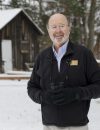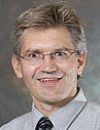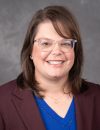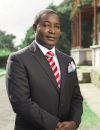UW-Madison reported on Thursday that nine out of every 10 members of the campus community are fully vaccinated — even without mandating students and employees to get the shot. “I’m proud of our students and employees for taking this important step to protect themselves and others,” Chancellor Rebecca Blank said in an announcement. “And I’m grateful to our staff, who worked tirelessly to achieve these results.”
UW In The News
-
Preserving the Selfless Heroism of the Passengers of United Flight 93
The attacks of 9/11 were called “the ultimate teachable moment,” but educators have never reached a consensus on “precisely what students should learn,” the scholars Diana Hess and Jeremy Stoddard, of the University of Wisconsin-Madison’s School of Education, have noted. Middle- and high-school textbooks and videos have tended to prioritize what Hess and Stoddard call “lower-order thinking,” which demands little more than rote memorization. Most of the curricula that Hess and Stoddard examined did not challenge “students to critically examine the roots of the attacks.” Some textbooks from the mid-two-thousands failed to provide even the number of people killed, or that Al Qaeda was responsible.
-
Two UW-Madison researchers have spent 20 years studying how 9/11 is taught in schools. Here’s what they learned.
As the World Trade Center towers collapsed, Diana Hess wondered if she should cancel class.
It was Sept. 11, 2001.
Hess, then an assistant professor in the University of Wisconsin-Madison’s School of Education, started hearing whispers that the entire campus would shut down. She had been preparing for an evening class for social studies student teachers, who were working in area middle schools and high schools.
But now, the world was changing before her eyes — and so was the social studies curriculum.
-
Time, misinfo complicate teaching 9/11 to kids born after it
“I think that the way it’s been taught has largely been memorializing the events versus really digging into the context of 9/11 and the ongoing sort of results of 9/11,” says Jeremy Stoddard, a University of Wisconsin-Madison professor who has researched that subject.
-
Vast Expansion in Aid Kept Food Insecurity From Growing Last Year
Before the pandemic, Judith Bartfeld, a researcher at the University of Wisconsin, found that school meals account for as much as 7 percent of economic resources among low-income households. That financial contribution approached the impact of the Supplemental Nutrition Assistance Program, or SNAP, the main federal antihunger program, which provided more than 10 percent of household resources but is larger and more visible.
-
These Jennifer Aniston Fans Weren’t Born When ‘Friends’ Aired
Among her young followers, Ms. Aniston’s apparent fallibility may well be a trump card, said Jonathan Gray, a professor of media and cultural studies at the University of Wisconsin.
-
Teaching 9/11 to those who weren’t alive to experience it
Sept. 11 is an important topic in classrooms across America leading up to the 20th anniversary of the attacks.Over time, teachers’ classrooms have become filled with students who were not alive in 2001. In fact, more than a quarter of Americans were not yet born when the attacks happened.Recent Stories from abcactionnews.com”We have students now who have no lived memory of it, and from what teachers reported, very little information about it and in some cases, sort of misinformation or misunderstandings of it,” said University of Wisconsin-Madison Professor Jeremy Stoddard.
-
What schools teach about 9/11 and the war on terror
The phrase “Never Forget” is often associated with the terror attacks of Sept. 11, 2001. But what does this phrase mean for U.S. students who are too young to remember? What are they being asked to never forget?
As education researchers in curriculum and instruction, we have studied since 2002 how the events of 9/11 and the global war on terror are integrated into secondary level U.S. classrooms and curricula. What we have found is a relatively consistent narrative that focuses on 9/11 as an unprecedented and shocking attack, the heroism of the firefighters and other first responders and a global community that stood behind the U.S. in its pursuit of terrorists.
-Jeremy Stoddard and Diana Hess
-
China chases ‘rejuvenation’ with control of tycoons, society
Party members who worry reforms might weaken political control appear to have decided China’s rise is permanent and liberalization is no longer needed, said Edward Friedman, a political scientist at the University of Wisconsin.
-
A Generation of American Men Give Up on College: ‘I Just Feel Lost’
Young men get little help, in part, because schools are focused on encouraging historically underrepresented students. Jerlando Jackson, department chair, Education Leadership and Policy Analysis, at the University of Wisconsin’s School of Education, said few campuses have been willing to spend limited funds on male underachievement that would also benefit white men, risking criticism for assisting those who have historically held the biggest educational advantages.
-
The Nation’s First Regenerative Dairy Works with Nature to Heal the Soil—at Scale
Despite that drop in production, grazing is overall a lower-cost approach to producing milk that can increase a dairy’s profitability, said Randy Jackson, a professor of grassland ecology at the University of Wisconsin-Madison.
-
Wolf Populations Drop as More States Allow Hunting
“The state was trying to maintain a tolerable level of mortality” through the February hunt, says Adrian Treves, a carnivore ecologist at the University of Wisconsin–Madison and an author of the study. “They didn’t.”
-
UW-Madison reports 90% of campus fully vaccinated even without vaccine mandate
-
UW chemist has used showmanship to excite people about basic science for more than a half-century
Bassam Shakhashiri stood before a packed theater, all eyes riveted on the bright red handkerchief in his hand.
“The blue is there. It’s hiding,” Shakhashiri said, having playfully promised his audience that he could change the cloth’s color. “I’m going to sho
-
Largest study of masks yet details their importance in fighting Covid-19
Ajay Sethi, an epidemiologist and associate professor of population health sciences at the University of Wisconsin-Madison, who was not involved with the study, called the research “thoughtfully put together” and “impressive on many different levels.”
-
Coronavirus vaccines work. But this statistical illusion makes people think they don’t.
Is the vaccine wearing off? It’s an exhausting thought for those of us who believed the battle against covid-19 would be won once enough needles plunged into enough arms. But outbreaks of the delta variant have blossomed even in places with high levels of vaccination, including Israel, Britain and my own home of Madison, Wis. Recent reports from Israel that nearly 60 percent of people hospitalized with severe covid-19 were fully vaccinated raised particular alarms about the limits of the protection that vaccines provide.
–Jordan Ellenberg, a math professor at the University of Wisconsin, is the author of “Shape: The Hidden Geometry of Information, Biology, Strategy, Democracy, and Everything Else.”
-
Fact check: FDA Pfizer vaccine approval doesn’t mean ‘nothing’
“The FDA rarely approves a food,” R. Alta Charo, a professor emerita of law and bioethics at the University of Wisconsin-Madison, told USA TODAY. “Foods go on the market without any prior screening by the FDA if they are generally recognized as safe.”
-
Climate change comes for a favorite summer pastime: fishing
In Wisconsin, brook trout are expected to disappear by 2050 from nearly 70 percent of the 10,000 miles of rivers and streams where they now swim, John Lyons, curator of fishes at the University of Wisconsin Zoology Museum, and colleagues reported in 2019. “You could argue this is a best-case scenario,” Lyons said.
-
Save the Planet, Eat a Bug
The practice of ethical entomophagy started haphazardly. In 1974, Gene DeFoliart, who was the chair of entomology at the University of Wisconsin, was asked by a colleague to recommend someone who could talk about edible insects as part of a symposium on unconventional protein sources
-
Headed away to school? Here’s what students with health issues need to know about insurance
Many schools require students to have health insurance and offer university-sponsored plans, said Jake Baggott, a past president of the American College Health Association and an associate vice chancellor of student affairs at the University of Wisconsin-Madison. He said that while some university health programs are equipped to deal with more complex medical issues or diagnostics, others are not. Students need to be clear on the details, such as whether their policy covers off-campus care.
-
Why Is Pluto Not a Planet?
The New Horizons flyby found evidence that Pluto—little Pluto!—might even have an ocean beneath its surface. “The name doesn’t matter,” Sanjay Limaye, a planetary scientist at the University of Wisconsin at Madison, told me. “It doesn’t matter what we call it, as long as we can explore it and learn from it.” Regardless of what we decide here on Earth, Pluto will still be there, doing its thing, blissfully unaware that some aliens a few rocks down are mesmerized by its existence.
-
UW-Madison to send $28.6 million in federal pandemic aid to students this year
Automatic payments hit students’ bank accounts this week, university officials said.
-
Hurricanes Get Names. What About Heat Waves?
Another issue is that the people who are most at risk, such as homeless people, older people living alone or people living in poverty, are often the ones who are the hardest to reach, said Richard C. Keller, a professor at the University of Wisconsin who focuses on the global history of the environment. For them, naming a heat wave may have limited, if any, impact, but it could raise overall awareness within a community, and prompt people to check in those who are more vulnerable.
-
U.S. Tennis Association Adds Quiet Rooms, More Mental Health Resources Ahead of U.S. Open
Dr. Claudia Reardon, a professor at the University of Wisconsin School of Medicine’s psychiatry department, is working with USTA on the initiative. She also provided a comment in the statement, saying, “We are working to create an environment that supports overall mental well-being.”
-
A native plant designer?s memoir reflects on a life in the field
The topography of the Midwest was always in his DNA — he grew up a farm boy in southwestern Iowa — but it wasn’t until he arrived at the University of Wisconsin at Madison as a graduate student that he began to see what was lost and how to revive it in some measure.
-
How Warming Is Affecting Northern Storms Like Henri
That’s probably because of complicating factors in the Atlantic Ocean basin, according to James Kossin, a senior scientist with the analytics firm the Climate Service and a researcher at the University of Wisconsin, Madison, who has studied the poleward migration of hurricanes.
-
Q&A: did the climate crisis fuel Henri and the Tennessee flooding?
The Atlantic has been several degrees warmer than normal over the past week, feeding the intensity of Henri as it barreled towards Rhode Island. Ocean temperatures “are very anomalous right now”, said James Kossin, a hurricane expert at the University of Wisconsin. “There’s a likely human fingerprint on that.”
-
Evidence mounts that people with breakthrough infections can spread Delta easily
“We’re the first to demonstrate, as far as I’m aware, that infectious virus can be cultured from the fully vaccinated infections,” says Kasen Riemersma, a virologist at University of Wisconsin who is one of the authors of the study.
-
As California burns, some ecologists say it’s time to rethink forest management
Yet despite a universal desire to avoid more destruction, experts aren’t always in agreement about what should be done before a blaze ignites. Forest management has long been touted as essential to fighting wildfires, with one new set of studies led by the University of Wisconsin and the U.S. Forest Service concluding that there is strong scientific evidence to support the effectiveness of thinning dense forests and reducing fuels through prescribed burns.
-
‘You are not a horse’: FDA tells Americans stop taking dewormer for Covid
“It is a far cry from an in-vitro lab replication to helping humans,” Dr Nasia Safdar, medical director of infection prevention at the University of Wisconsin-Madison Hospital, told the Associated Press.
-
Arizona ‘bracing for impact’ of Trump-driven election report
Other election experts have previously torn into the Arizona review as unprofessionally run, including a report from former Kentucky Secretary of State Trey Grayson, a Republican, and Barry Burden, the director of the Elections Research Center at the University of Wisconsin–Madison.
“The Cyber Ninjas review suffers from a variety of maladies: uncompetitive contracting, a lack of impartiality and partisan balance, a faulty ballot review process, inconsistency in procedures, an unacceptably high level of error built into the process, and insufficient security,” Grayson and Burden wrote in their June report. “Because it lacks the essential elements of a bona fide post-election analysis, the review currently underway in Maricopa County will not produce findings that should be trusted.”
- Newer stories
- Page 38 of 140
- Older stories
Featured Experts
Kathleen Glass: Food safety
Food is an integral part of Thanksgiving. And who doesn't love leftovers? But after how long should you leave those… More
Cecelia Klingele: Body-worn cameras by police
Madison Police Chief Shon Barnes is requesting that the city fund widespread use of body cameras for officers in the… More
Stanley Temple: Fall phenology
The days have finally started getting cooler and we all know winter awaits. Stanley Temple, an expert on birds, wildlife, endangered… More
Jonathan Temte: The seasonal flu shot
Family medicine professor Jonathan Temte is available to discuss this year's updated seasonal flu shot and flu prevention and control. More
Noelle LoConte: Pancreatic Cancer Awareness Month
Pancreatic cancer is one of the most difficult cancers to prevent, diagnose or treat. Earlier this month, music legend Quincy… More
Alvin Thomas: Movember and Men's Health Month
You might see more facial hair this month as Movember goes into full effect, drawing awareness toward men's health. Alvin… More
Dominique Brossard: Vaccine hesitancy
With a new administration poised to take power in January, a change in policy regarding vaccines may also be on the way.… More







